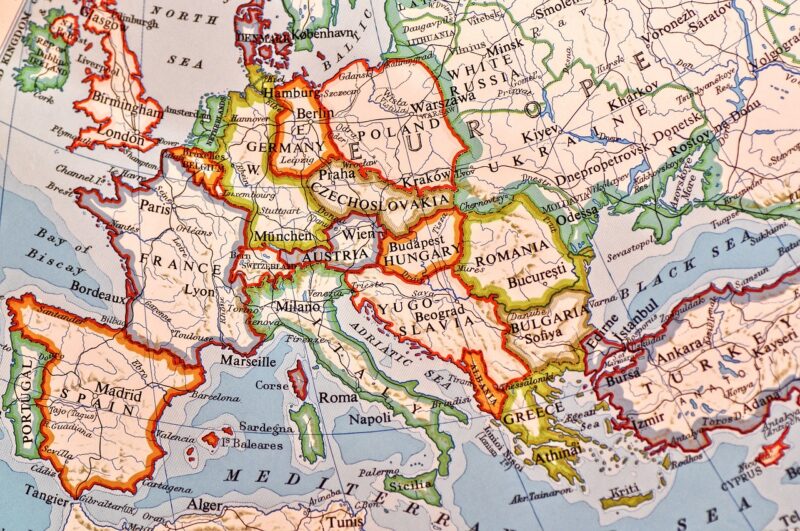Why Geography Plays a Critical Role in Political and Military Decisions
November 16, 2024

Geography has long been recognized as a crucial factor influencing human behavior, societal development, and global interactions. From the earliest civilizations to modern nation-states, geography shapes political landscapes, military strategies, economic relationships, and cultural exchanges. Understanding how geographical elements affect political and military decisions can provide deeper insights into current global affairs and historical events.
1. The Influence of Geography on Political Boundaries
Geography plays a fundamental role in determining political boundaries. Natural barriers, such as mountains, rivers, and oceans, often define borders and influence the delineation of states. For example:
- The Himalayan mountains separate India from China and Nepal, making it difficult for invasive forces to move between these countries, while also affecting trade routes.
- Rivers like the Rhine and the Danube have historically served as natural borders in Europe, influencing the division of territories and the development of nations.
- The English Channel serves as a protective barrier for the United Kingdom, historically influencing its foreign policy and military strategy.
Political boundaries established by geography can create tensions and conflict, especially in regions where ethnic groups or cultures are divided by arbitrary borders. An example of this is the situation in the Balkans, where ancient rivalries were exacerbated by drawn borders that did not reflect ethnic realities.
2. Natural Resources and Economic Strategies
Natural resources found in certain geographical regions significantly impact political decisions and military strategies. Nations rich in resources often find themselves at the center of geopolitical conflicts. For instance:
- The discovery of oil in the Middle East transformed the area into a locus of global interest, leading to numerous wars and political interventions.
- Countries with access to precious metals and minerals, such as diamonds in Africa, have witnessed conflicts driven by the pursuit of wealth and control over these resources.
- Water scarcity and access to freshwater resources have led to conflicts in regions like the Nile Basin, impacting relations among nations like Egypt, Sudan, and Ethiopia.
In modern times, control over resources drives nations to adapt policies and engage in military action to secure economic interests, often leading to strategic alliances and rivalries.
3. Geographic Location and Military Strategy
The geographic location of a nation significantly shapes its military strategies. The vulnerability or security of a country can dictate its defense policies, alliances, and military spending. Some key factors include:
- Proximity to Rivals: Nations located near hostile neighbors may feel compelled to build stronger military forces. For example, Israel’s military policies heavily reflect its proximity to Palestinian territories and neighboring Arab nations.
- Access to Oceans: Nations with significant coastlines, such as the United States, develop naval capabilities to protect maritime interests and ensure trade routes remain open.
- Fragmented Terrain: Countries with difficult terrains may focus on guerrilla tactics, as seen in Afghanistan, where rugged landscapes have challenged conventional military strategies.
The strategic significance of geographic features can lead to alliances based on mutual security needs. For example, NATO was formed largely based on the geographic realities of the Cold War, when the proximity of the USSR led Western nations to consolidate military power.
4. Climate Change and Political Stability
In the 21st century, climate change is reshaping the geopolitical landscape in profound ways. As weather patterns shift, they create new challenges for nations, influencing political decisions and military readiness:
- Rising sea levels threaten coastal cities, compelling nations to consider displacement and migration policies, which can lead to regional tensions, as seen with climate refugees.
- Impact on Agriculture: Areas that once thrived agriculturally may face drought and food shortages, increasing competition for resources, as experienced in parts of Africa and the Middle East.
- Melting ice in the Arctic opens new shipping routes and resource opportunities, leading to territorial disputes among nations like Canada, Russia, and the United States.
The implications of climate change force political leaders to adapt their strategies, focusing on sustainability, resource management, and environmental diplomacy—including potential military deployments in response to humanitarian crises.
5. Historical Case Studies: Lessons from the Past
Examining historical events reveals how geography shaped critical political and military decisions. A few notable examples include:
- The Roman Empire: The Romans strategically utilized their control of the Mediterranean Sea to enhance trade and military dominance.
- World War II: The geography of Europe, particularly the blitzkrieg tactics employed by Germany, relied heavily on understanding terrain and speed of movement.
- The Cold War: The division of Germany by the Berlin Wall symbolized not just ideological differences but also geographical separations that influenced military posturing and political policies.
These historical instances underscore the importance of geography as a force that not only influences nations’ policies but also shapes the course of human history itself.
Conclusion
Geography is a determining factor in the political and military decisions made by nations. From natural barriers to resources, geographic features significantly influence boundaries, military strategy, and economic stability. As contemporary issues such as climate change emerge, understanding the intersection of geography with political and military decision-making becomes increasingly critical. By analyzing geographical influences, nations can better navigate the complexities of global politics and military engagements, leading to informed and effective policy-making for the future.






